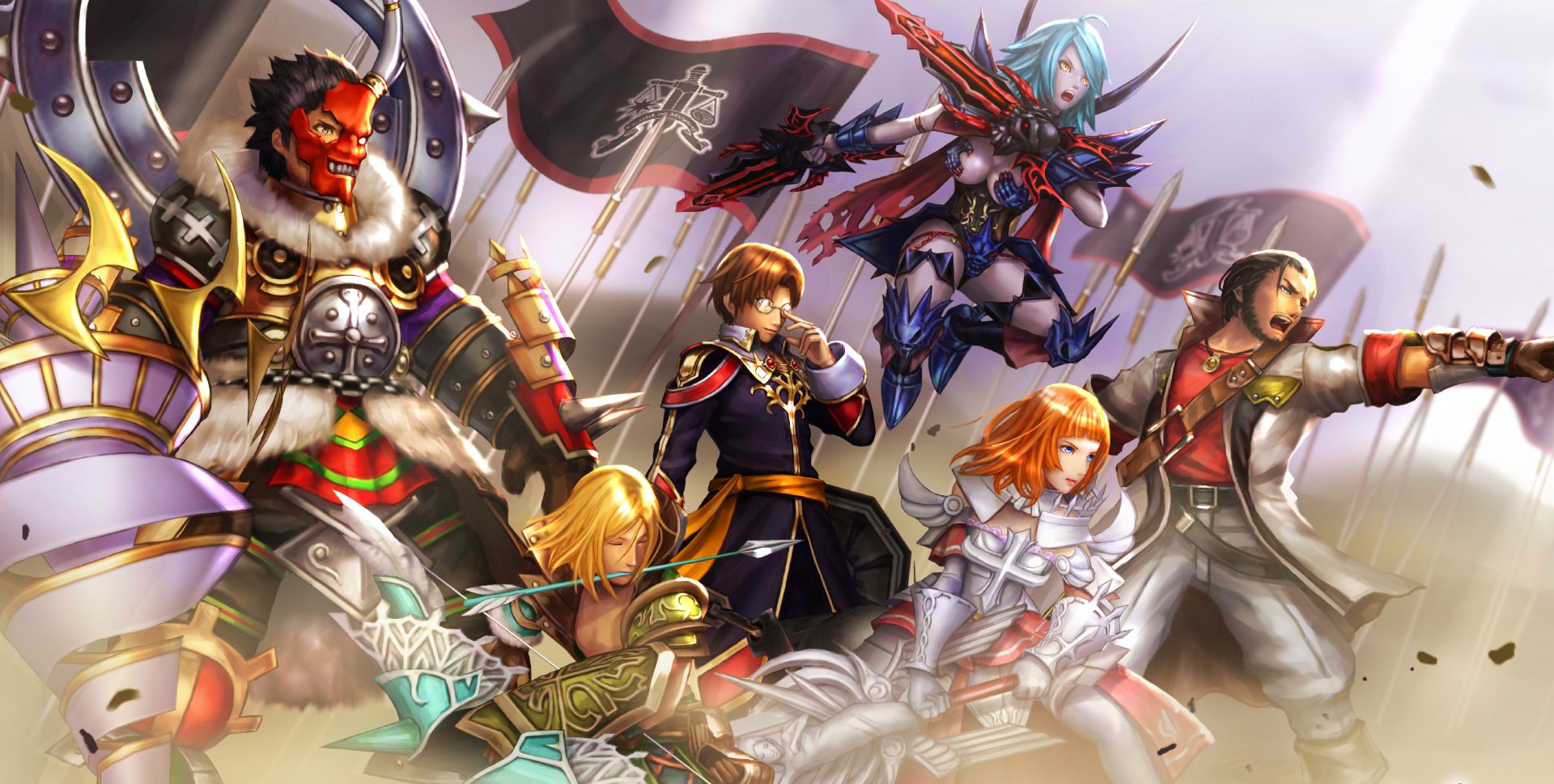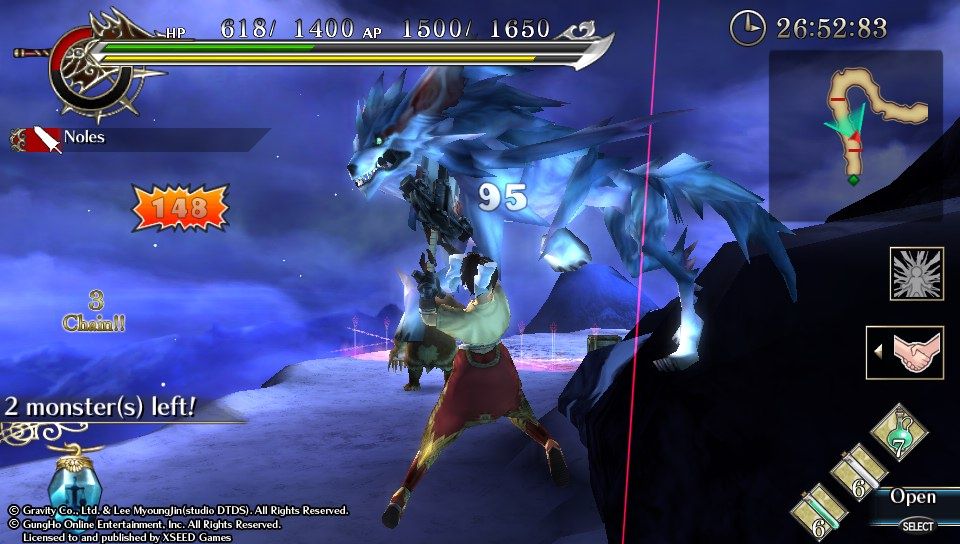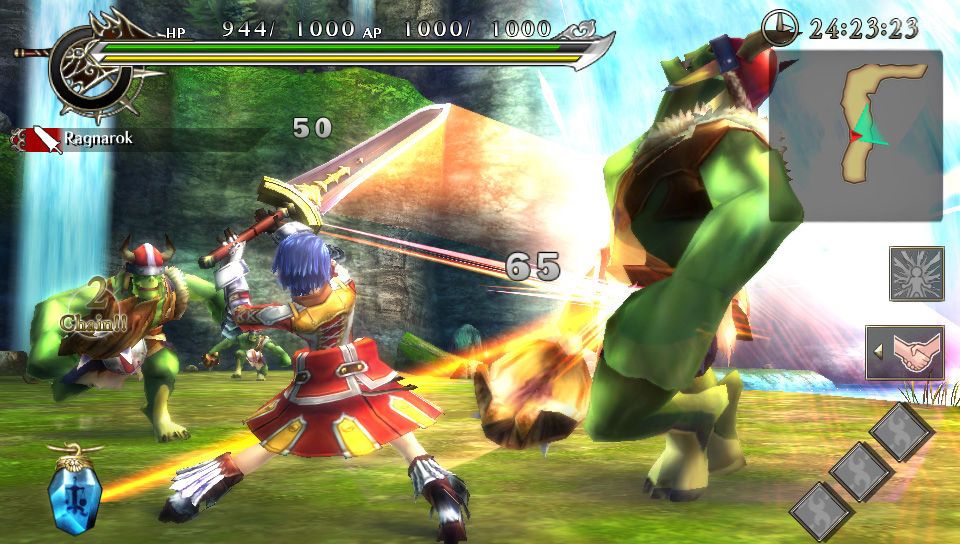A while ago, we sent over some questions to XSEED inquiring about Ragnarok Odyssey, which we recently reviewed here on DualShockers. We're happy to have XSEED's Executive Vice President Ken Berry and Localization Manager Jessica Chavez respond and fire off some answers to our inquiries. If you're a fan of the Monster Hunter style of gameplay, you should definitely check the game out, and it's a nice title to have in your Vita's (possibly lacking) game library. (If you'd like to see an unboxing of the special Mercenary Edition, you can find that around here, as well!)
Now that I got that out of the way, why don't you take a look at the interview for some great perspectives on Ragnarok Odyssey and some other possible localizations, as well.
DualShockers: Games like Monster Hunter are hugely popular in Japan. What are some ways Ragnarok Odyssey - a game that shares some of the same basic design ideas - tries to stand out when put side by side to games like that, and how do you think the lesser influence of those types of games in the West will impact things, if at all?
Ken Berry (EVP): You could think of Monster Hunter as being within a larger ‘hunting’ genre, one that also includes games such as ‘God Eater’ and ‘Phantasy Star Online.’ The games within the genre do share some basic design philosophies, but they also have their own unique characters too. One major way Ragnarok Odyssey stands out is having a more fast-paced action battle system, one where jumps and aerial combos is critical to the gameplay.
This hunting genre may not be as popular in the West as they are in Japan, but there is definitely a core dedicated fanbase that will support them.
DualShockers: Ragnarok Odyssey is based in the same world as Ragnarok Online, what difficulties came up in making sure all the names and mythology of the games match up? How did the localization go?
Jessica Chavez (Localization Manager): Luckily our translator was up to the task and did a great job charting the new stuff from the Odyssey world, while also touching base with the Ragnarok Online that fans know and love. We were also provided a very comprehensive glossary to fall back on, so when things from the greater Ragnarok Online universe came up, she was able to just look up previous translations in there.
A lot of the new terminology had roots in Norse mythology, though, and I do confess that much time in the office was spent butchering the pronunciation of “Mount Hnitbjorg” and “Thjodhildr.” Thankfully, neither of those were voiced lines.
DualShockers: Were there any changes - aside from the obvious adventures in localizing Japanese dialog - made to the game for the U.S. release?
Jessica Chavez (Localization Manager): Game-wise the North American version is comparable to the versions released elsewhere and doesn’t have any features unique to it. We did, however, get a lot of the Japanese DLC included on our version (no download needed!), and we also got to offer a swanky Mercenary Edition which included the game, a soundtrack CD, 10 monster cards and a Mercenary Guide.
DualShockers: In an interview a little bit ago, the possibility of having the DLC that was released in Japan for the game included when the game launched in the U.S. was discussed. It was unclear at the time what, if any, would be included. Is there any more info you can give us on that now?
Jessica Chavez (Localization Manager): We're currently working on getting all the remaining DLC out to fans. The North American release came with a ton of the Japanese version DLC/expansion goodies already packed into the game, but we have some sweet PSN avatars, new accessories, bonus outfits and a ton of music to release still. Look forward to it!
DualShockers: Were there any pros and cons to working with the PlayStation Vita this early in its life span, or, for that matter, localizing the game on the Vita?
Ken Berry (EVP): As a publisher, we are more concerned on the sales side than the technical aspects, but there are always huge risks when you don’t know what the install base and attach rates will be, as well as how much
retailers will be supporting the new hardware. On the flipside, there’s also a lot of potential because there’s fewer titles on new hardware, meaning less competition, and the early adopters that purchased the hardware are eagerly looking forward to increasing their games library for their new system.
In terms of localization, it involves buying a lot of new hardware for the office and learning a lot of new verification and submission processes.
DualShockers: Many considered the PSP to be the perfect platform for RPG fans. (On a personal note, The Legend of Heroes: Trails in the Sky is probably my all-time favorite JRPG on the PSP.) Some consider the Vita as a system that will move heavily in that direction, as well. What are XSEED’s thoughts on the system? Any future plans you can fill us in on? Perhaps another collaboration with Nihon Falcom on a localization of Ys Celceta, the first Ys title to be designed specifically for the Vita? :hint, hint:
Ken Berry (EVP): We loved the PSP as it had a ton of great games from Japan, and we definitely hope that all the PSP users will migrate to the Vita at some point, in not just North America but also in Japan, which would help ensure that quality games continue to get made for that system. We would love to work on as many more Nihon Falcom titles as possible as we’re huge fans of all their games, but licensing is a two-way street and we can’t make that decision on our own. There are other Vita titles that we’re also looking at, and though it’s become much more difficult we don’t want to count PSP titles completely out just yet. The ability of Vita titles to play PSP games from PSN is a huge benefit, so if a digital-only PSP release such as our upcoming Corpse Party: Book of Shadows can have a good showing this late in the PSP’s lifecycle thanks to Vita owners picking it up, it may make us reevaluate trying to bring over other great PSP games that never made it over from Japan.
All of us here at DualShockers would like to thank Ken and Jessica for contributing to this little Q&A session. I know I can speak for more than a few of our staff and readers when I say that that last comment there - about continuing to localize PSP games that never made it over here - is a breath of fresh air amid larger publishers who may not be as liberal with localization efforts. It makes me a happy Japanese game fan!



